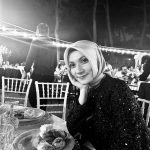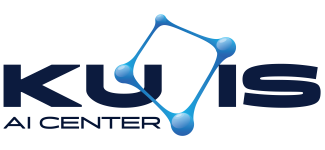
Dilek Özkan, PhD student in Biomedical Science and Engineering
Can you briefly introduce yourself and share your background in AI research?
I have always been passionate about the human brain, artificial neural networks and medical imaging technologies. I graduated from medical school in 2021. In order to be able to easily adapt to any computational research environment and to contribute to my foundation in machine learning and deep learning background, I officially enrolled engineering courses even though I was at medical school. After my graduation, I worked in the emergency service for a few months. I worked as a researcher on the detection of MS lesion segmentation at Goethe-University, Institute for Neuroradiology. Currently, I am a PhD student under the supervision of Professor Çiğdem Gündüz Demir. I want to combine my medical knowledge with my interest in computational sciences and create applications that have diagnostic value, high accuracy and efficiency.
What initially sparked your interest in the field of AI? Was there a particular moment or experience that inspired you to pursue this area of study?
My interest in the field of AI was sparked by the profound mystery of the human brain and its intricate processes. Despite extensive research, there is still so much we don’t understand about how the brain functions. The concept of mimicking the brain’s information processing, particularly through neural networks that resemble neural cells, deeply intrigued me. The potential to create systems that emulate human cognitive abilities inspired me to pursue AI and its related disciplines.
Could you tell us about your current research or thesis topic in AI? What motivated you to choose this specific area?
I am currently working on the diagnosis of eye diseases using ocular ultrasound (USG). This area of research is particularly important because the early identification of certain eye diseases is crucial; even a short delay in diagnosis can lead to irreversible blindness. One of the key motivations behind my research is the scarcity of specialized medical expertise in rural areas. By leveraging AI, I aim to develop tools that can assist in the accurate and timely diagnosis of eye diseases, making specialized medical insights accessible to a broader population.
What excites you the most about the potential applications of AI in the real world? Are there any specific domains or industries where you believe AI can make a significant impact?
I believe one of the most exciting applications will be in the field of robotics. Increased research and investment are likely to lead to significant advancements in the industry, which will help overcome challenging problems, such as conducting research in space, oceans, and more.
What are your future career aspirations in the field of AI? Do you have any specific goals or areas of focus that you would like to pursue?
When I began my PhD, it seemed like a long journey, but given the challenges of the field, this time now feels short to achieve full independent research competence. Consequently, I’m still undecided about pursuing a postdoctoral position after my PhD. However, in the long term, I aspire to work at a company that has a strong research and development department focused on medical image processing applications.
Can you share a memorable experience or achievement from your AI research journey so far? What did you learn from that experience?
Academic studies do not immediately bring information that could be put into practice. Achieving these requires patience and determination. I was at the times I felt useless and overwhelmed. I started to work as a occupational physician and performing periodic examinations for visually impaired candidates. Many of them had become disabled due to retinal detachment, either from traffic accidents or unknown causes, and their lives were extremely challenging. Hearing their stories deeply touched me and motivated me to push forward in my research.
A book and movie that you recommend ?
Büyük Defter – Kanıt – Üçüncü Yalan (Agota Kristof)
God’s Crooked Lines (2022)
Reflecting on your recent AI research, could you describe a particular challenge or obstacle you encountered during the process?
I encountered several personal and scientific challenges.
Starting with personal difficulties, when I had questions or faced obstacles, I often felt isolated because my specific research topic was not well-known by others. This made it hard to seek advice or guidance, contributing to feelings of loneliness. There were times when I questioned whether I had chosen the right research topic. Doubts about the relevance and impact of my work occasionally affected my motivation and focus. At times, I struggled with maintaining the necessary drive and ambition. As I got older, and especially if my friends were not also pursuing PhDs, my world and priorities began to diverge from those around me, making it harder to stay committed.
In addition to these personal challenges, there were scientific obstacles common in any research. One significant challenge was the lack of a large and reliable dataset. High-quality data is crucial for training accurate AI models, and the scarcity of such data hindered my progress. When I came up with a new idea, I found that others were already working on it. This made it difficult to contribute novel and unique thing to the area
NOTE:I would like to express my heartfelt gratitude to my advisor, Professor Cigdem Gündüz Demir, for providing me with the opportunity to pursue my dreams. Her patience during our meetings, especially when I faced challenges and errors, has been invaluable in my growth and development.
